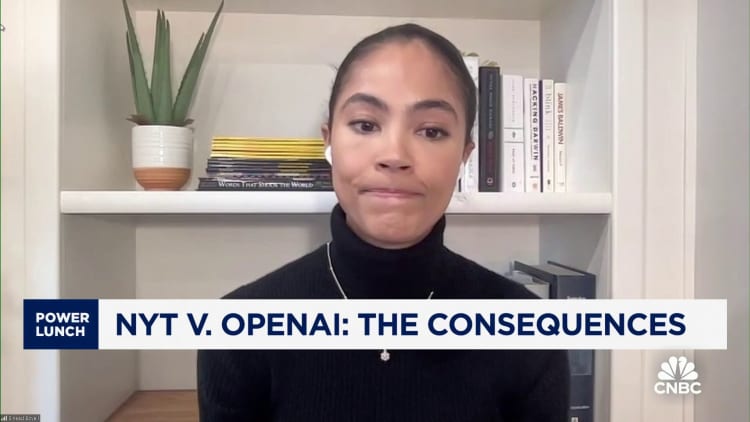OpenAI CEO Sam Altman says concerns that artificial intelligence will one day become so powerful that it will dramatically reshape and disrupt the world are overblown.
"It will change the world much less than we all think and it will change jobs much less than we all think," Altman said at a conversation organized by Bloomberg at the World Economic Forum in Davos, Switzerland.
Altman was specifically referencing artificial general intelligence, or AGI, a term used to refer to a form of AI that can complete tasks to the same level, or a step above, humans.
He said AGI could be developed in the "reasonably close-ish future."
Altman, whose company burst into the mainstream after the public launch of the ChatGPT chatbot in late 2022, has tried to temper concerns from AI skeptics about the degree to which the technology will take over society.
Before the introduction of OpenAI's GPT-4 model in March, Altman warned technologists not to get overexcited by its potential, saying that people would likely be "disappointed" with it.
"People are begging to be disappointed and they will be," Altman said during a January interview with StrictlyVC. "We don't have an actual [artificial general intelligence] and that's sort of what's expected of us."
Founded in 2015, OpenAI's stated mission is to achieve AGI. The company, which is backed by Microsoft and has a private market valuation approaching $100 billion, says it wants to design the technology safely.
Following Donald Trump's victory in the Iowa Republican caucus on Monday, Altman was asked whether AI might exacerbate economic inequalities and lead to dislocation of the working class as the presidential elections pick up steam.
"Yes, for sure, I think that's something to think about," Altman said. But he later said, "This is much more of a tool than I expected."
Altman said AI isn't yet replacing jobs at the scale that many economists fear, and added that the technology is already getting to a place where it's becoming an "incredible tool for productivity."
Concerns about AI safety and OpenAI's role in protecting it were at the center of Altman's brief ouster from the company in November after the board said it had lost confidence in its leader. Altman was swiftly reinstated as CEO after a broad backlash from OpenAI employees and investors. Upon his return, Microsoft gained a nonvoting board observer seat at OpenAI.
WATCH: OpenAI, Microsoft and NYT will likely reach a settlement

Don't miss these stories from CNBC PRO:
- Tesla versus BYD: Analysts prefer one of them — giving it up to over 70% upside
- Goldman says small caps to beat large caps this year. 10 cheap smaller stocks to buy
- DoubleLine's Gundlach sees 'very painful' economic downturn, S&P 500 may be forming 'double top'
- 'One of the best valuations for AI': Buy the dip in this Big Tech stock, strategist says







